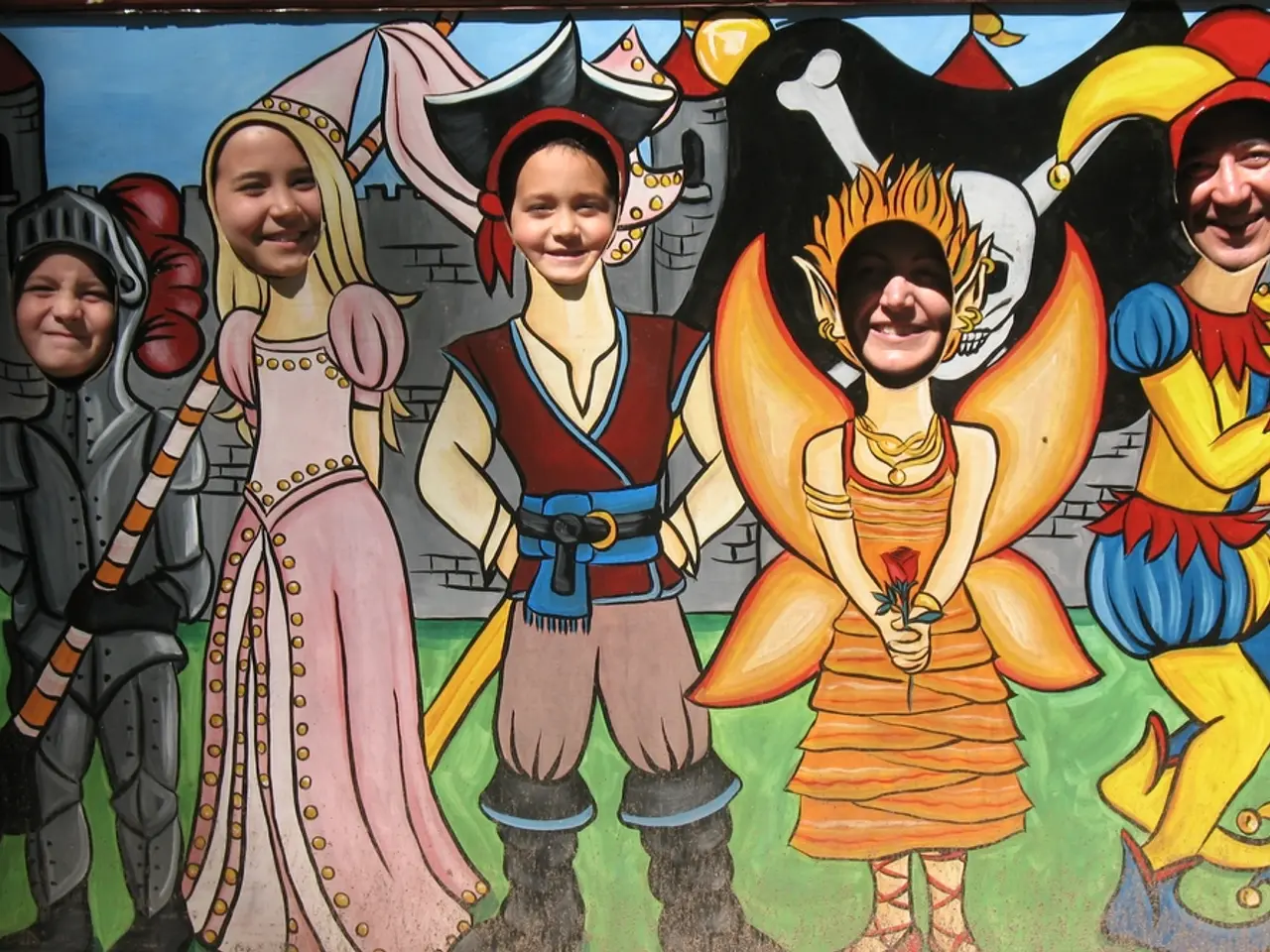Netflix Incorporates Generative AI for the First Time in a Show; Could Signal Future Trends in TV Production
In the ever-evolving world of cinema, the use of Artificial Intelligence (AI) in filmmaking is becoming a hot topic of discussion, particularly among creative circles. This evolution is especially noticeable in the application of AI in creating visual effects (VFX), a significant move that is reshaping the entertainment industry and impacting filmmakers worldwide.
One of the most promising aspects of AI-generated VFX is its potential to significantly reduce production costs and time for local filmmakers. By enabling more efficient, flexible, and accessible filmmaking workflows, AI is poised to revolutionize the industry.
One way AI achieves this is by reducing the need for physical resources. Traditional methods such as green screen setups and hiring thousands of extras can be costly and time-consuming. AI tools, however, can simulate crowds and complex worlds digitally, eliminating the need for these resources. For instance, AI-powered crowd simulation software used in films like *Ant-Man and the Wasp: Quantum Mania* has drastically lowered costs by eliminating the need for hiring and directing thousands of extras.
AI also speeds up production and post-production processes. Real-time digital backdrops and automated post-production tasks like shot composition, lighting setups, and editing drastically shorten production timelines, allowing filmmakers to see visual effects on set and editors to identify the best takes automatically. This efficiency allows for faster turnaround times, enabling filmmakers to produce more content in less time.
Moreover, AI tools designed specifically for filmmakers, such as Moonvalley’s Marey, integrate into traditional workflows, allowing even small or independent studios to create and tweak visual effects granularly without needing massive infrastructure. This democratizes access to high-quality VFX previously available only to big-budget productions.
The expansion of AI use beyond large studios is another game-changer. AI-driven visual enhancements, like digital de-aging, facial expression tweaking, and voice cloning, are no longer limited to sci-fi and fantasy blockbusters. These technologies are now being used in independent and low-budget productions, leveling the playing field and making high-end visual effects more accessible to filmmakers outside of Hollywood.
However, the use of AI in filmmaking is not without its ethical and artistic considerations. While AI offers efficiency, there is tension within the creative community about the potential loss of artistry and authenticity. Some filmmakers emphasize the importance of integrating AI tools as aids rather than replacements for creative decisions, ensuring that artistic vision remains central.
Netflix, a pioneer in AI-assisted VFX, has emphasized that AI is being used as a tool to help creatives, not to replace them. The streaming giant used generative AI for the first time in the Argentine sci-fi series El Eternauta, using AI to create a VFX scene showing a building collapsing in Buenos Aires.
In the future, this technology could potentially extend beyond visual effects to include scriptwriting and dubbing, further revolutionizing the filmmaking process. Zimbabwe's filmmakers could create complex VFX scenes without requiring extensive resources or time, opening up new possibilities for storytelling.
In conclusion, AI-generated visual effects provide local filmmakers with powerful cost-saving and time-reduction opportunities, enabling them to produce visually sophisticated content with fewer resources. These technologies are making advanced VFX workflows more accessible and faster, though the industry continues to wrestle with ethical and creative challenges. As AI continues to evolve, it is likely that its role in filmmaking will become even more integral, shaping the future of cinema in profound ways.
[1] https://www.wired.com/story/ai-is-revolutionizing-the-way-filmmakers-make-movies/ [2] https://www.forbes.com/sites/forbesagencycouncil/2021/06/28/how-ai-is-changing-the-film-industry-for-the-better/?sh=657c145b11d5 [3] https://www.cnn.com/2021/07/12/entertainment/ai-film-industry-impact/index.html
Artificial Intelligence (AI) is revolutionizing the way filmmakers, even small or independent studios, create visual effects (VFX) by reducing both the costs and time required for production. For example, AI-powered crowd simulation software has lowered costs significantly by eliminating the need for hiring and directing thousands of extras.
AI also expedites production and post-production processes, enabling filmmakers to see visual effects on set and edit more efficiently, which in turn shortens production timelines and allows for faster turnaround times in the industry.




